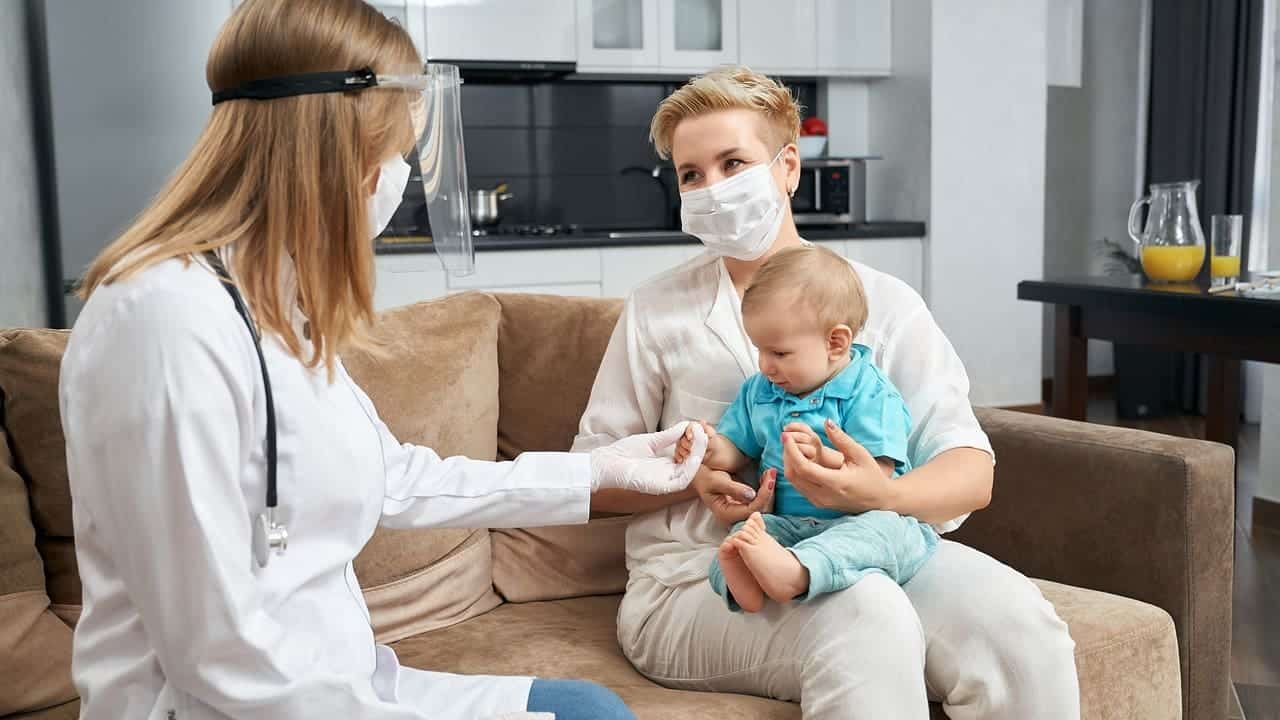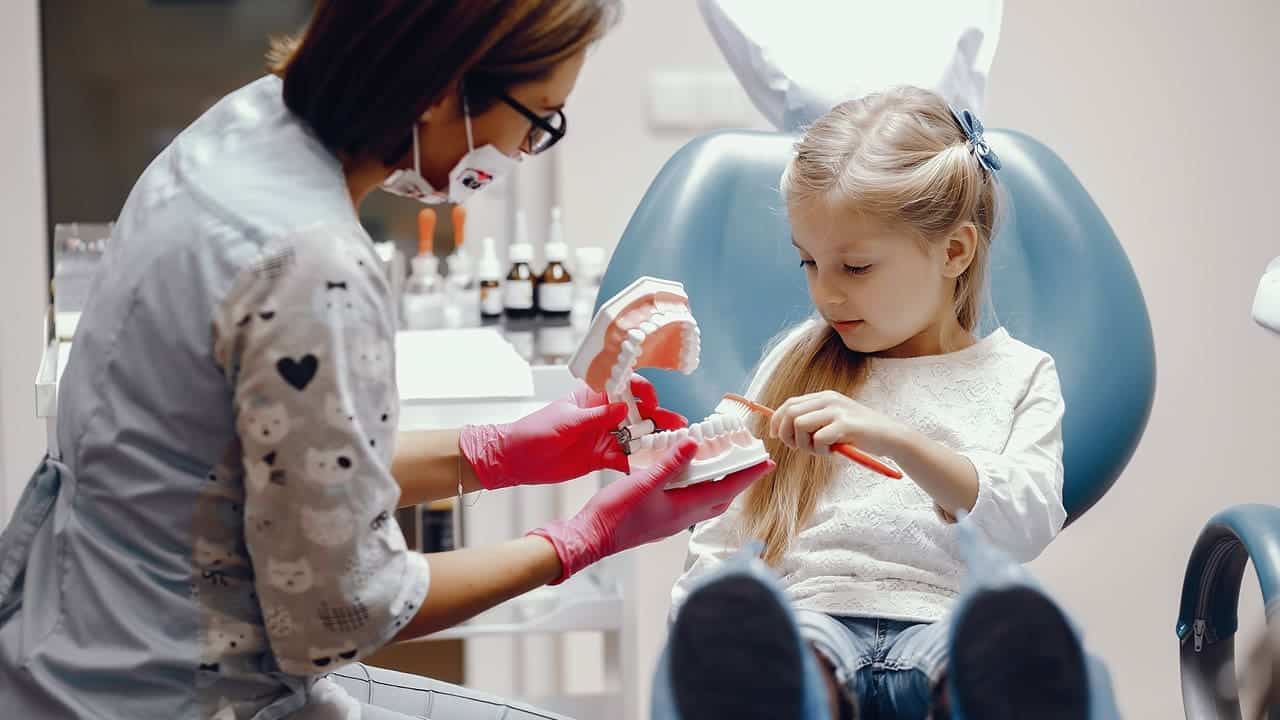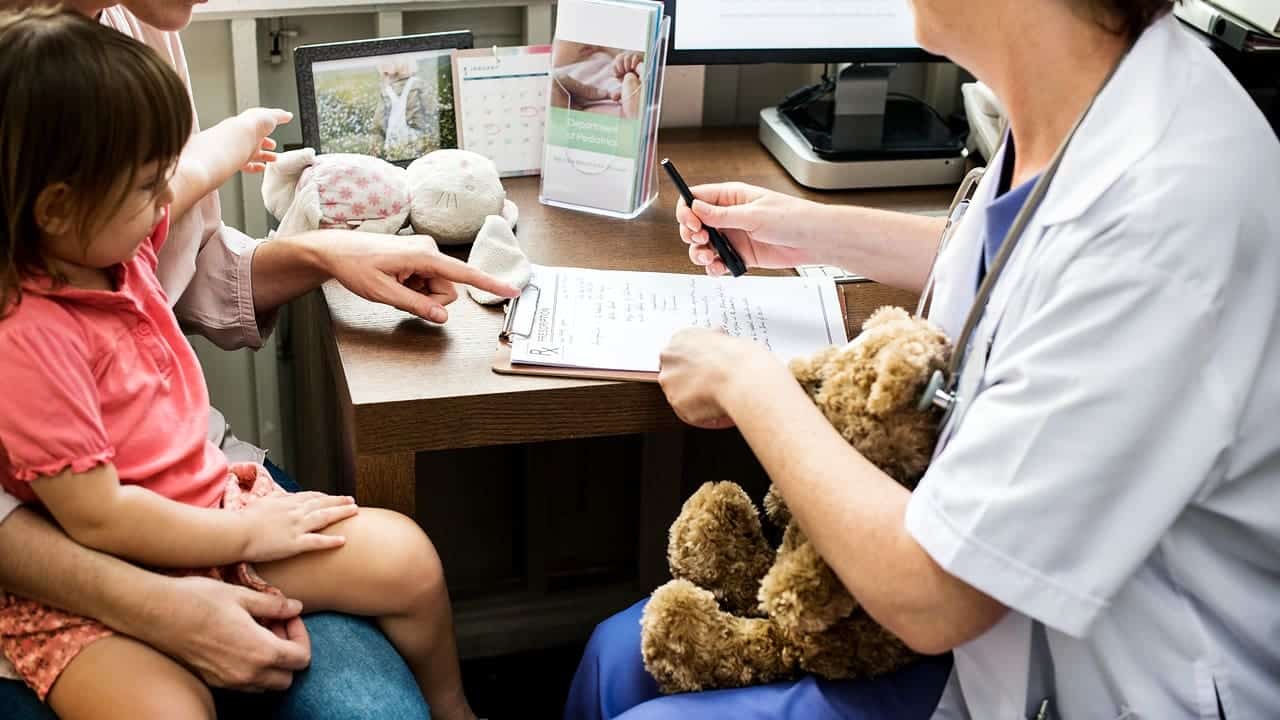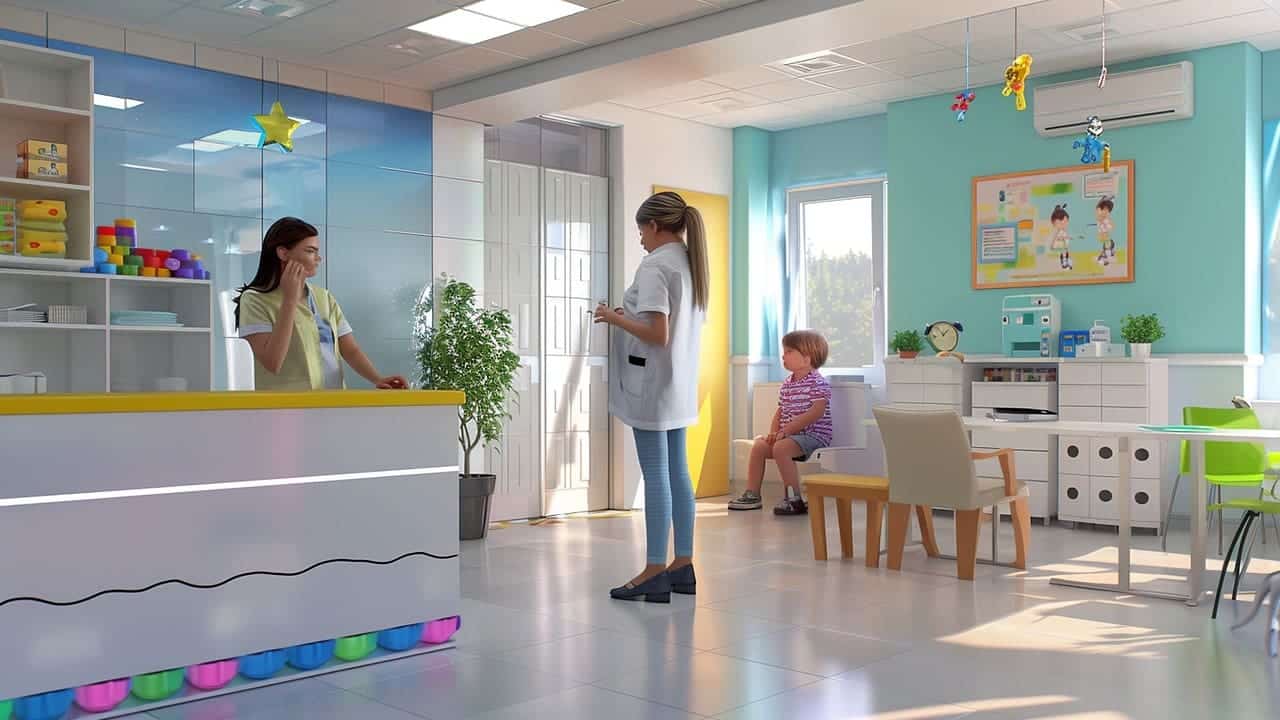Pediatric Health Care: A Comprehensive Parent Guide to Child Centered Care
Pediatric health care includes regular checkups, developmental screenings, vaccinations, care for sudden illnesses, and referrals to specialists. This approach helps keep children healthy and gives families peace of mind. Parents benefit from quick access, clear information, and treatment plans that fit into daily life.
A good pediatric health center makes sure medical decisions support what matters at home, like sleep, nutrition, hydration, tracking symptoms, and safe activities, so your child can recover comfortably and grow well.
During well child visits, clinicians check growth, nutrition, sleep patterns, development milestones, and vaccination status. They also create space for your questions, whether about fevers, rashes, feeding challenges, or recurring colds. When a child is sick, your pediatric team helps you decide what can be managed at home and what needs in person evaluation.
Many practices offer same day sick visits and after hours triage to reduce unnecessary pediatric urgent care trips. If your child benefits from pediatric behavioral health, pediatric dental health, or pediatric home health, your primary pediatric team coordinates these services so instructions remain simple, consistent, and easy to follow.

Today’s pediatric care looks at the whole child. Doctors consider not just physical symptoms, but also mood, stress, sleep, and family life. For example, frequent stomachaches might be caused by constipation, changes in diet, or anxiety. By treating both medical and behavioral causes, families often see faster and longer lasting results. Clear instructions about what to watch for, when to call, and how to prevent problems help turn each visit into real progress for your child and reassurance for you.
Pediatric Behavioral Health: Recognizing Needs and Accessing Care
Pediatric behavioral health supports emotional regulation, attention and focus, mood, and coping skills. Common concerns include anxiety, irritability, sleep trouble, school avoidance, tics, and behavior changes after stress. Early recognition is key. Signals to watch include persistent worries, sadness, frequent meltdowns, withdrawal from favorite activities, changes in appetite or sleep, and physical symptoms such as headaches without a clear cause.
Care often begins with an assessment that looks at routines, sleep, nutrition, symptoms, and possible triggers. Many pediatric clinics offer short therapy sessions, coaching for parents, and practical tips like calming routines, limits on screen time, movement breaks, and simple coping tools such as slow breathing.
If needed, your pediatric health center can connect you with mental health specialists for counseling and ongoing support. Telehealth can make follow ups or parent coaching easier, while in person visits are arranged for exams or tests. The main goal is caring, family focused support that matches your child’s needs.
Pediatric Home Health: What It Is, Who It Helps, and How It Works ?
Pediatric home health provides skilled nursing and therapy in your home for children who need ongoing medical or rehabilitative support. Services can include medication administration, feeding tube care, catheter care, wound care, monitoring of chronic conditions, and physical, occupational, or speech therapy. Families also receive hands on teaching, so daily care equipment use, symptom tracking, and recognizing red flags feels safe and manageable.

Who benefits from home health care?
Children who are recovering from surgery, have complex conditions, or need frequent therapy often do better at home, where routines are familiar and there is less risk of infection. Home health teams work closely with your main pediatric providers to keep instructions clear and updates fast.
When choosing a pediatric home health agency, look for experience with children, clear steps for emergencies, 7/24 support, and written care plans with supply lists and emergency instructions. Good communication knowing who will visit, when they will come, and what skills they have helps build trust and keeps care organized.
Community Health Pediatrics: Coordinated Care Close to Home

Community health pediatrics brings primary care, immunizations, behavioral health, dental screenings, and care navigation into neighborhood clinics. The goal is to remove obstacles such as transportation issues, fragmented records, and scheduling delays. Families benefit from same day visits, outreach to prevent missed vaccines, and group education on topics such as asthma action plans, infant feeding, and teen wellness.
Clinics connected through pediatric health partners or a pediatric health care alliance can securely share records so growth charts, lab results, and referral notes are available to authorized clinicians.
This reduces duplicate testing and speeds up decisions when your child needs pediatric dental health services for a cavity or pediatric behavioral health follow up after new symptoms arise. For chronic conditions such as asthma or eczema, community teams create action plans, reduce triggers, and schedule check ins to prevent flare ups.
Pediatric Urgent Care vs. Primary Pediatric Health Care: When to Choose Which
It’s not always easy to know where to go when your child has symptoms. Your main pediatric health center is best for checkups, managing ongoing conditions, refilling medicines, and most same day issues like ear pain, sore throat, rashes, mild wheezing, or feeding problems.
Pediatric urgent care is helpful when your child needs quick attention, such as for high fevers with tiredness, moderate dehydration, injuries that might need stitches, or asthma that is getting worse but not severe. After any urgent care visit, let your pediatric clinic know so your child’s records stay current and follow up is smooth.
Know the signs that need urgent or emergency evaluation now: difficulty breathing or blue lips, severe wheezing not improving with usual measures, dehydration signs (very dry mouth, no tears, minimal urination, unusual sleepiness), persistent high fever with severe headache or neck stiffness, deep cuts, possible fractures, severe abdominal pain, or significant head injury. When in doubt, call your pediatric clinic for triage.
Pediatric Dental Health: Prevention, First Visits, and When to See a Specialist
Oral health is closely linked to your child’s overall well being. Early dental visits, ideally by the time the first tooth appears or by the first birthday, help set good habits and catch problems early. At home, prevention is simple: brush your child’s teeth twice a day using a small amount of fluoride toothpaste (rice sized for toddlers, pea sized after age three), limit sugary snacks and juices, give water between meals, and ask about fluoride varnish at pediatric visits if needed.

See pediatric dental health professionals for tooth pain, visible cavities, injuries, or ongoing sensitivity. Pediatric dental teams use child friendly approaches, protective sealants, and minimally invasive techniques to reduce anxiety and keep appointments efficient. If your child has medical or sensory needs, your pediatric clinic can coordinate with the dental team so that accommodations are in place and the experience is smooth.
Pediatric Mental Health: Signs, Support, and Family Strategies
Pediatric mental health works alongside behavioral health by focusing on daily habits that boost mood, attention, and resilience. Helpful steps include keeping regular sleep routines (same bedtime and wake time, dim lights before bed, no screens an hour before sleep), daily physical activity, regular meals and drinks, and supportive check ins to talk about feelings and solve problems. Coping tools like slow breathing, relaxing muscles, and writing worries in a journal can help children manage their emotions.
Seek evaluation when sadness, irritability, excessive worry, panic attacks, or withdrawal from activities persist or impair daily life. Immediate help is essential for self harm talk or severe functional decline.
Your pediatric health center may provide brief therapy, coordinate with pediatric mental health specialists, and help you navigate coverage requirements for services like counseling or speech therapy when relevant. With a clear plan and scheduled follow ups, families often see steady progress.
Pediatric Health Partners and Care Alliances: Navigating Multi Clinic Networks

Many communities have networks that link primary care clinics, urgent care, specialists, and pediatric home health. These pediatric health partners share records securely, use the same protocols, and make referrals easier. For families, this means less paperwork, quicker approvals, and clearer instructions after visits. Ask about extended hours, telehealth options, and how notes from urgent care or specialists are sent back to your child’s main pediatric health center.
Care navigators within these networks can be invaluable. They help schedule appointments, explain test results, coordinate equipment deliveries for home health pediatrics, and ensure follow ups are booked. When you choose a network, consider location convenience, on call coverage, access to pediatric behavioral health, integration with pediatric dental health, and how the team communicates between visits.
Choosing a Pediatric Health Center: Safety, Access, and Family Experience
Choosing a pediatric health center is about finding the right quality and fit. Safety is most important, with good infection control, accurate medication checks, and clear after visit summaries to prevent mistakes and ease worries. Access is also key: look for same day or next day sick visits, phone lines for questions, and evening or weekend hours. Communication should be easy, with secure messaging, quick sharing of results, and reliable follow up after tests or referrals.

Integrated services elevate convenience. Many clinics offer pediatric behavioral health, dental health screenings, lactation support, and social work under one roof or through close referral partners. The environment should be child friendly, inclusive, and accommodating of sensory needs. Continuity, the ability to see the same clinician or small team, builds trust and helps subtle changes in health get noticed sooner. Confirm how the clinic handles after hours questions and how records are shared across partnering facilities so nothing falls through the cracks.
Pediatric Health Choice: Practical Tips for Appointments, Telehealth, and Follow‑Up
A few deliberate steps make pediatric care smoother:
- Prepare a short list of top concerns, symptom timelines, and current medications with doses.
- Track recurring issues with a simple diary sleep, appetite, temperature, triggers to reveal patterns.
- Prioritize the most impactful symptoms so the visit addresses what matters most first.
- Ask for a written plan that explains what to watch, when to call, and how to prevent recurrences.
- Use telehealth for follow ups, behavior coaching, medication checks, and results reviews when appropriate.
- Coordinate so urgent care, dental, or specialist notes are sent back to your pediatric health center.
- Schedule follow ups before leaving and set reminders for vaccines and rechecks.
Families using pediatric home health benefit from a shared binder or secure app for visit notes, supply lists, and emergency contacts. For pediatric behavioral health or mental health services, clarify how parents and clinicians will communicate between sessions, how progress is measured, and how adjustments will be made. The result is care that is well orchestrated, easy to understand, and aligned with your family’s goals.
Putting It All Together: Whole Child, Whole Family Care
Children thrive when their care is well coordinated and consistent. Your pediatric health center, behavioral health team, dental providers, and, if needed, home health staff all work together to support your family. Simple daily habits like staying hydrated, keeping regular sleep, active play, and steady routines add up to big health benefits.
Community health pediatrics and strong health partner networks help make care easier, so you can focus on your child instead of paperwork.
Above all, the aim is safe, child centered care delivered with clarity and kindness. With the right team, practical education, and accessible services, families move from uncertainty to confidence, one visit at a time.
Liv Hospital Pediatric Health and Diseases Clinic
Liv Hospital Pediatric Health and Diseases Clinic aims to provide the highest quality of all kinds of health services with the awareness of protecting the health of our children, who are our future, and raising them as healthier individuals.
Diagnosis and Treatment for the Related Branch in Sub Branch Clinics
- Pediatric Nephrology,
- Pediatric Rheumatology
- Pediatric Cardiology
- Pediatric Endocrinology
- Pediatric Infection
- Pediatric Allergy and Immunology
- Pediatric Gastroenterology
- Pediatric Neurology
- Pediatric Nephrology
- Pediatric Hematology
- Pediatric and Adolescent Psychiatry
- Pediatric Surgery and Urology
- Infant Critical Care Clinic
Frequently Asked Questions for Pediatric Health
How do I see my child’s health records (pediatric)?
Most pediatric clinics offer secure portals for lab results, visit summaries, vaccination records, and messaging. Ask your clinic for the steps to obtain portal access and the proxy permissions required.
Does health insurance cover pediatric dental?
Some plans include pediatric dental benefits such as preventive exams, cleanings, fluoride, and sealants. Coverage varies—review your policy to confirm limits, age specific rules, and participating providers.
How to choose pediatric home health?
Look for agencies experienced with children, clear communication, 24/7 support, coordinated plans with your pediatric clinic, and written instructions for supplies, medications, and emergencies.
What do pediatric home health nurses do?
They provide in home clinical care, teach families safe techniques, monitor symptoms, coordinate with your pediatric clinic, and follow clear care plans with red flag instructions.
What is pediatric home health care?
Pediatric home health care brings skilled nursing and therapy to your home for children who need ongoing medical support medication administration, feeding tube help, wound care, monitoring, therapy, and caregiver education.




